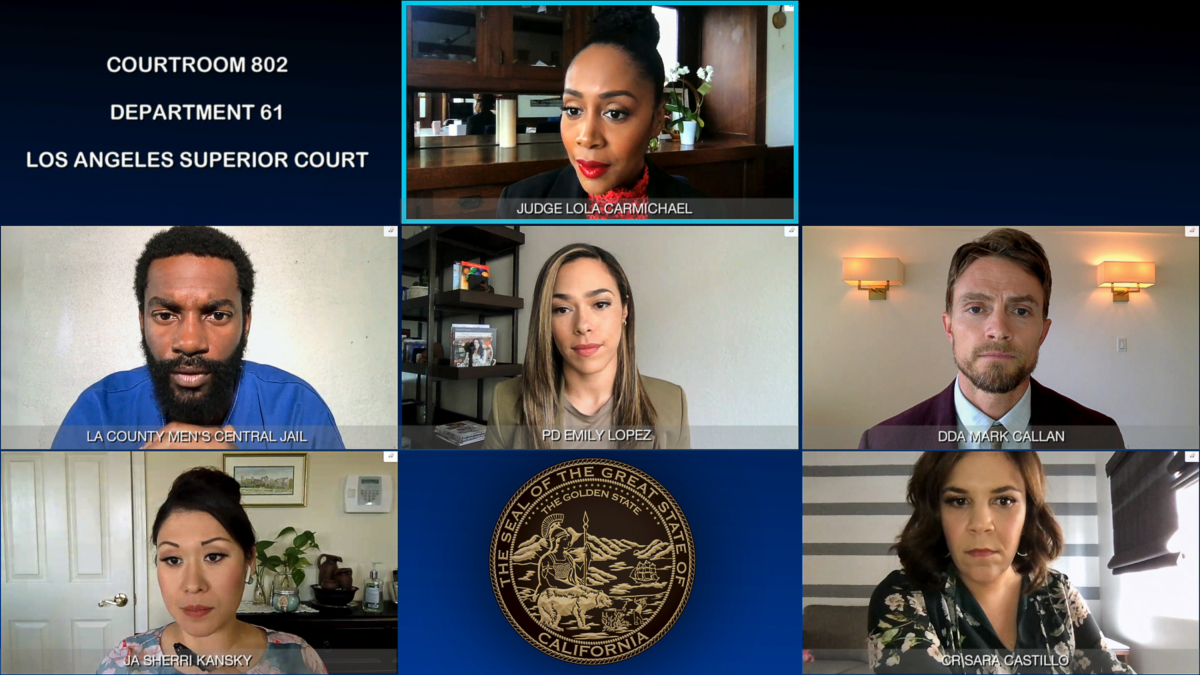Video Conferencing with the Court: Tips and Best Practices

CBS Broadcasting, Inc.
They are calling it “the flush heard around the world.” I am calling it the “flush heard by the small minority of people who listen to live Supreme Court Oral Arguments.” Whatever it ends up being called, one thing is for sure: during a telephonic oral argument, a United States Supreme Court Justice flushed the toilet, and it was loud enough for everyone listening in to hear. It truly can happen to the best of us.
Since the restrictions related to COVID-19 began, many of us have been relying heavily on technology to conduct telephone or video conferences in our professional and personal lives. Virtual court appearances during the shelter-in-place order have even made their way into scripted televisions shows, appearing in the season finale of the legal drama, All Rise.
Locally, the Lancaster County Court has taken steps to start holding hearings and conferences using video conference technology. As I mentioned in a previous post, the Lancaster County Court is holding hearings via the Lifesize application.
With the increased use of this technology, it is a good idea to review some tips and best practices for video conferencing with judges and other court personnel where respect, decorum, and, as we know now, conscientious bathroom habits are paramount.
Preparation is Key
Before your video conference hearing begins, select a quiet location where you will remain throughout the hearing. This location should have a neutral background and should not contain any personal items that you would not want the Court or the other parties to see. It is a good idea to be in a room with a door that can close to signal to others in your house that you should not be disturbed. (As a mom who is working from home with two small children, I know that this can be difficult!)
You can use a computer, tablet or smartphone for video conferencing. If you are using a smartphone, set your phone in the landscape orientation so that you appear to the other users in full screen. Place your device on a stationary surface, not in your hand.
Be mindful of what you are wearing. Dress (at least from the waist up) in the same type of clothing that you would wear if you were appearing in person. Do not be that person who gets caught on a Zoom call in their underwear!
If you are new to video conferencing or to the particular app that the Court is using, do a test run before the hearing or conference. The attorneys and staff at Russell, Krafft & Gruber, LLP are happy to do a practice call with you before a hearing to make sure that everything is working. You should test the sound and video quality and practice muting and unmuting your device.
Initiating the Call
A few minutes before the video conference begins, log in to the application you will be using. You may be placed in a waiting room until the person in charge of leading the conference authorizes it to start. Remember that the conference may begin at any time, so be prepared. When you initiate the call, assume that your video will be on so all the participants will be able to see you.
If your video is not turned on (which you’ll be able to tell because you can’t see yourself on the screen), click the button to turn the video on. Be sure that your microphone is muted. It is standard practice to keep your device on mute except when it is your turn to speak.
Participating in the Call
During the call, the judge or court officer will direct how they will run the hearing or conference. Defer to your attorney as to when to speak but pay close attention so that you are ready to respond if the judge or your attorney asks you any questions.
If you would like to speak to your attorney privately during the call, let your attorney know and they can make arrangements to allow for a private conversation offline.
The attorneys are Russell, Krafft & Gruber, LLP are experienced in appearing before the Court using videoconference technology. If you have a legal matter that requires a video conference court appearance, contact one of our attorneys to discuss how to make the most of your hearing.
Laura McGarry is an attorney at Russell, Krafft and Gruber, LLP in Lancaster, Pennsylvania. She received her law degree from Penn State Law and provides legal counsel to individuals and businesses in Lancaster and surrounding communities.
